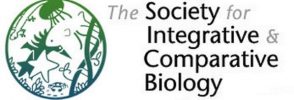Contents
Message from the Chair
David R. Angelini, Chair.DEDB@sicb.org
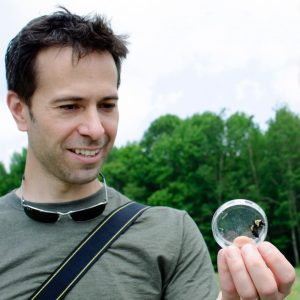
The SICB conference is always a wonderful way to start the new year. A celebration of science. A chance to catch up with old colleagues and to meet new people. An energizing exchange of ideas and exploration of recent experiments. This has never been more true than in 2022, where the Phoenix conference was the first in-person event many of us, myself included, attended in nearly two years. At the same time, it was amazing to see the range of science that people could share through SICB+ as the society has led the way in developing better virtual platforms to share science.
I’m particularly excited to step into the DEDB division chair’s position this year. The evo-devo community has many options this year, with the joint SDB/EvoDevoPanAm meeting in Vancouver and the EuroEvoDevo meeting in Naples. However, the breadth of biology at SICB is a unique strength and the interdisciplinary nature of evo-devo means that DEDB has a special place at SICB.
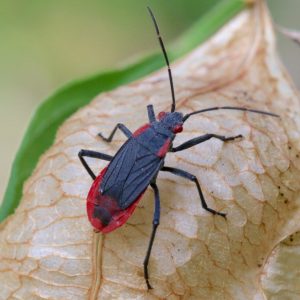
DEDB’s role in SICB is well-exemplified by the symposia our division sponsored or co-sponsored in Phoenix: “Lesser known transitions: organismal form and function across abiotic gradients,” “Causal mechanisms of interspecific metabolic scaling patterns,” “Morphology and evolution of female copulatory morphology in Amniotes,” “Open source solutions in experimental design,” “The deep and shallow history of aquatic life’s passages between marine and freshwater habitats,” and “Phenological plasticity: from molecular mechanisms to ecological and evolutionary implications.” One of my students from Colby College and I were able to present in this last session. It was a chance for me to share genomic and gene expression data that we’ve been analyzing in recent years on polyphenism and dispersal/fecundity trade-offs in the soapberry bug, Jadera haematoloma, a system we’ve been developing to study this issue. My student, Pilar Fuentes, joined me in Phoenix, where she was able to cap her undergraduate senior year by presenting some of her recent work on plasticity in flour beetles (she gracefully negotiated some AV issues too!) and by exploring potential graduate opportunities.
This year’s competition for the best student presentations integrated the in-person and remote presenters in a remarkably successful way. Judging these presentations is always a fabulous way to see the work of young researchers in our field. The awards were well-earned by Amber Rock (Harvard University; Srivastava Lab) for best oral presentation and Anuj Ghimire (North Dakota State University; Heidinger Lab) for best poster.
The organizers of any conference deserve our thanks. But 2022 presented unique challenges, and this year’s conference, online and in person, would not have been possible without the significant efforts of the division’s program officer Matt Rockman, secretary Leslie Babonis, and graduate student/postdoctoral representative Ryan Hulett. Dede Lyons deserves special thanks for leading DEDB through the last two years and for her role in preparing this year’s conference. SICB 2022 also marked the inauguration of the “New Faculty Launch” workshop, co-hosted by DEDB members Leslie Babonis, Dede Lyons, Billie Swalla, and Rebecca Varney. The workshop was a smashing success with over 30 attendees, representing 9 of SICBs 12 divisions – look for it to appear annually in the SICB program and please let us know if you’re interested in serving as a host. DEDB’s new Twitter account is now active @SICB_DEDB. Please follow us for news from the society, evo-devo tidbits, and of course cool pics of weird animals and plants.
Hopefully, we are all looking forward to SICB 2023, online and in Austin. Meanwhile, SICB is organizing a number of mid-year workshops. The PUI working group has organized online discussions around teaching and working at undergraduate institutions. This spring’s society-wide newsletter has more details on the initiative, including a link to sign-up for their mailing list. (You can also follow @SICB_PUI on Twitter.) And I hope you were able to engage with the series on SciComm: Distilling Complexity on March 11, for advice on effective communication, and Engaging Diverse Audiences on April 8, for discussions on making presentations more inclusive and accessible.
If you have any thoughts on what DEDB can do for you, please don’t hesitate to reach out! Email chair.dedb@sicb.org.
Message from the Program Officer
Frank Smith, DPO.DEDB@sicb.org
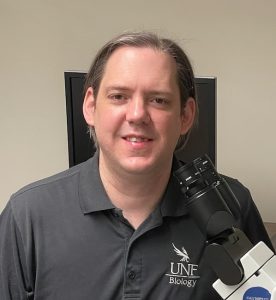
First off, let me share how happy I am to serve DEDB as the new Divisional Program Officer. My sincere thanks to Matt Rockman for providing me with a bunch of resources to facilitate my transition into this position. Thanks go out to Matt too for his excellent tenure in this position. Additionally, I would like to thank all of the SICB people that worked so hard to make Phoenix 2022 happen, both online and in person. A round of applause goes out to you for that amazing accomplishment.
SICB 2020 in Austin stands out to me as a milestone of the pre-pandemic era.
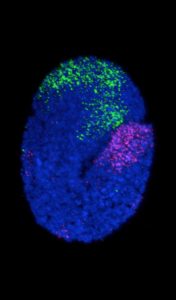
Hopefully, returning to Austin in 2023 will feel a bit like returning to normalcy for our Society. Austin is one of the most fun cities that we visit on a regular basis. Let’s hope that it will be safe enough for our colleagues that have yet to return to in-person meetings to meet us in Austin! DEDB is sponsoring several exciting symposia at the meeting, including “Pathways to adulthood: environmental, developmental, and evolutionary influences on the ontogeny of form and function,” “Biology at birth: the role of infancy in providing the foundation for lifetime success,” “Micro-scale life,” “Genomics of marine larval evolution and development,” “Visions for a diverse, inclusive & safe future for field biology,” and “Sex diversity and variation.” Although it’s too late to propose symposia for SICB 2023, it’s not too late to propose workshops. Let me know if you have any ideas.
After Austin, we’ll be in Seattle for SICB 2024. So, it’s time to start thinking about DEDB symposia ideas for this meeting. In fact, the deadline for symposia proposals for SICB 2024 is this August. So, if you have any ideas let me know. I’m happy to facilitate your proposal as much as I can.
Message from the Secretary
Leslie S. Babonis, Secretary.DEDB@sicb.org
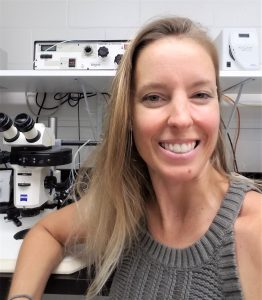
Never a dull moment, DEDB: it’s time once again to elect a new Chair. We are grateful to the two outstanding volunteers who stepped up for the task: Prashant Sharma and Athula Wikramanayake (see their bios below). Elections are open with the announcement of this newsletter, and make sure to vote. Also note there are proposed amendments to the DEDB bylaws for your consideration, they can be found here. Voters like you keep the division alive!
We had two member meetings this year (a bumper year!) – one in Phoenix and one via SICB+. If you happened to miss them both, you can get caught up with all the DEDB happenings by viewing the meeting minutes here. Don’t forget to follow us on Twitter @SICB_DEDB for news, job postings, lovely images, and more!
Don’t forget to check out our new(ish) spring newsletter segment: the Forgotten Heroes of EvoDevo, and feel free to make suggestions if there is someone special you’d like us to highlight in an upcoming newsletter.
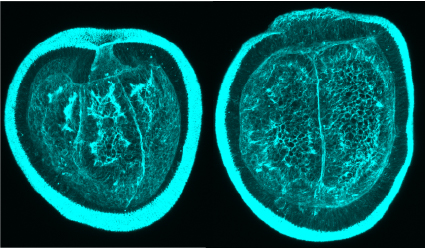
Message from the Student/Postdoctoral Affairs Committee Representative
Ryan Hulett, rhulett@g.harvard.edu
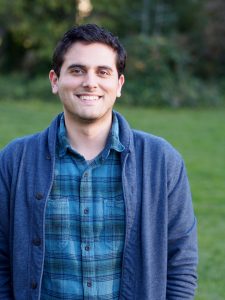
Hello Hello DEDBers!
A huge round of applause for everyone who attended and presented at SICB 2022 in Phoenix and virtually at SICB+. There is/was so much incredible science happening and I hope you had the opportunity to experience some wonderful talks and posters.
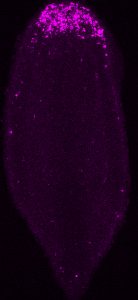
The Evo-Devo meet-ups was another popular event this year because of the wonderful hosts and trainees that signed up. A heartfelt thank you to our hosts for supporting this program and to our students for signing up with such enthusiasm. Look out for an email from me in the fall regarding the 2023 event, as well as opportunities to support your meeting and travel costs. We hope to see you all next year!
If you have any comments, questions, suggestions, or would like to get more involved in DEDB- please contact me. Have a healthy spring + summer and I hope you plan to attend SICB next year!
Forgotten Heroes of EvoDevo
*NEW(ish) SPRING NEWSLETTER SEGMENT*

This spring we celebrate the life, the legacy, the science of Vera Danchakoff (1879-1950). Born of parents who encouraged her to pursue a life of art, Danchakoff was endowed with a deep passion for natural and medical sciences. She became the first woman to receive a doctorate degree in medical sciences from the St. Petersburg Academy of Medicine and later became the first female professor in all of Russia (at Moscow University). Seeking new experiences, new challenges, and the promise of a better life, Danchakoff emigrated to the US, worked briefly at the Rockefeller Institute for Medical Science and then became Instructor of Anatomy at Columbia University. Her comparative studies of vascular development in birds and reptiles, led Danchakoff to assert (1916) that all blood cell types had a common origin. In her words: “…all these cells are different cell units, morphologically as well as physiologically…but in the early embryonic stages they all had a common mother-cell, and this mother-cell is preserved in the adult organism and becomes the source of differentiation and regeneration and most probably also the source of pathological proliferation.” You read that right – she correctly identified the first hematopoietic stem cells and pointed to stem cells as a source for cancer…in 1916! Although she was not the first to use the term “stem cell” (see reference to the Stemmzelle; Maximow, 1909), these detailed investigations earned Danchakoff the title “mother of stem cells,” and solidified her place among the “Forgotten Heroes of EvoDevo.” In honor of your pioneering spirit, your commitment to discovery, and your detailed interrogation of cell identity – we salute you, Dr. Vera Danchakoff.
Read her monograph here (also see plate 1: A CELL PHYLOGENY!):
Danchakoff V. (1916) Origin of the blood cells. Development of the haematopoetic organs and regeneration of the blood cells from the standpoint of the monophyletic school. Anat. Rec., 10: 397-416. doi:10.1002/ar.1090100506
Also see: Maximow, A. (1909). “Der Lymphozyt als gemeinsame Stammzelle der verschiedenen Blutelemente in der embryonalen Entwicklung und im postfetalen Leben der Säugetiere”. Folia Haematologica. 8: 125–134. Archived from the original on 23 June 2016. Retrieved 14 August 2016.
Candidates for Chair-Elect
Prashant P. Sharma

Current Position: Assistant Professor of Biology, University of Wisconsin-Madison
Education: PhD, Harvard University, Department of Organismic and Evolutionary Biology, Cambridge, MA, USA (2012); AB, Harvard University, Department of Organismic and Evolutionary Biology, Cambridge, MA, USA (2006)
Professional Experience: Assistant Professor, Department of Zoology, University of Wisconsin-Madison, Madison, WI, USA (2105-present); NSF Postdoctoral Fellow, American Museum of Natural History, New York, NY, USA (2012-2015)
SICB Activities: Member of SICB since 2012; Secretary of DEDB 2019-2021
Other Memberships: Pan-American Society for Evolutionary Developmental Biology; International Society of Arachnology; American Arachnological Society
Research Interests: I am broadly interested in the macroevolution of arthropods and the developmental basis for morphological diversity across the phylum. My laboratory focuses on generating genomic resources, functional toolkits, and phylogenomic frameworks for integrative study of chelicerate arthropods, such as arachnids and sea spiders.
Statement of Goals: It is my honor to be nominated for Chair of DEDB, and I am overjoyed to bring my enthusiasm to the service of the Division once again. My candidacy for DEDB Chair emphasizes three initiatives. First, toward furthering our Division’s recent successes with respect to membership and visibility in annual programs, I aim to continue fostering links across the Society and promoting DEDB-sponsored symposium proposals, with emphasis on interdisciplinary topics that invite buy-in from our sister Divisions. I look forward to working closely with our Divisional and Society-wide Program Officers in this regard. Second, I envision DEDB as a future resource hub for evo-devo news, approaches, and discipline-specific advising. As such, I hope to create a central digital repository of laboratory contacts, methods, protocols, and career advising content, for and by the DEDB membership. My vision is a DEDB-specific resource that will facilitate project and methods development for students and postdocs; laboratory setup for new junior faculty; and professional developmental for all career stages. Third, I will initiate the process to endow our Best Student Presentation prize as a named award (e.g., DPCB’s Wake Award), in recognition of both the maturing of our Division and discipline, as well as the outstanding contributions to our Division by some of our founding members. I aim to initiate a Division-wide nomination process, followed by a vote, to mark the upcoming 25th anniversary of our Division’s founding.
Athula H. Wikramanayake
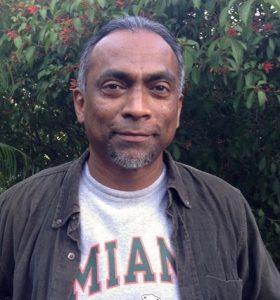
Current Position: Professor and Chair, Department of Biology, University of Miami, Coral Gables, FL
Education: PhD, Zoology, University of California, Davis (1993); BS, Biology, Slippery Rock University, PA (1983)
Professional Experience: Chair, Department of Biology, University of Miami (2014-present); Professor, Department of Biology, University of Miami (2009-present); Associate Professor, Department of Biology, University of Miami (2007-2009); Associate Professor, Department of Zoology, University of Hawaii at Manoa (2005-2007); Assistant Professor, Department of Zoology, University of Hawaii at Manoa (2001-2005); Assistant Professor (NTT), Department of Biochemistry and Molecular Biology, University of Texas, M.D. Anderson Cancer Center (1998-2000); Research Associate, Department of Biochemistry and Molecular Biology, University of Texas, M.D. Anderson Cancer Center (1997-1998); Postdoctoral Fellow, Department of Biochemistry and Molecular Biology, University of Texas, M.D. Anderson Cancer Center (Dr. William Klein, Mentor; 1993-1997)
SICB Activities: Member since 2014
Other Memberships: Society for Developmental Biology, Pan American Society for Evolutionary Developmental Biology (Development Officer)
Research Interests: My long-term research interest has been to understand the specification, patterning and evolution of the animal-vegetal axis of metazoan eggs using echinoderm and cnidarian model systems. In particular, my lab has been interested in understanding how cytoarchitectural polarities in oocytes are used to locally activate the evolutionarily conserved Wnt/beta-catenin signaling pathway to initiate germ layer segregation and axis patterning.
Statement of Goals: I am honored by the nomination to run for Chair of DEDB. As a broadly trained biologist I have always enjoyed attending SICB meetings because of the amazing breadth and diversity of the biology featured at the annual meetings. My first talk at a scientific conference was at a SICB meeting early in my graduate career and these meetings remain outstanding venues for undergraduate and graduate students to attend and present their work. Over the years SICB/DEDB has also had a strong commitment to helping early career scientists in many ways including providing support for travel, opportunities for talks, mentoring dinners at meetings and more! If I were elected Chair I will continue to promote and expand these opportunities. I have particularly enjoyed the DEDB-sponsored symposia at the SICB meeting, and if I were to be elected Chair of DEDB I would promote the organization of symposia that integrated with other divisions of SICB and with the Pan American Society for Evolutionary Developmental Biology.
